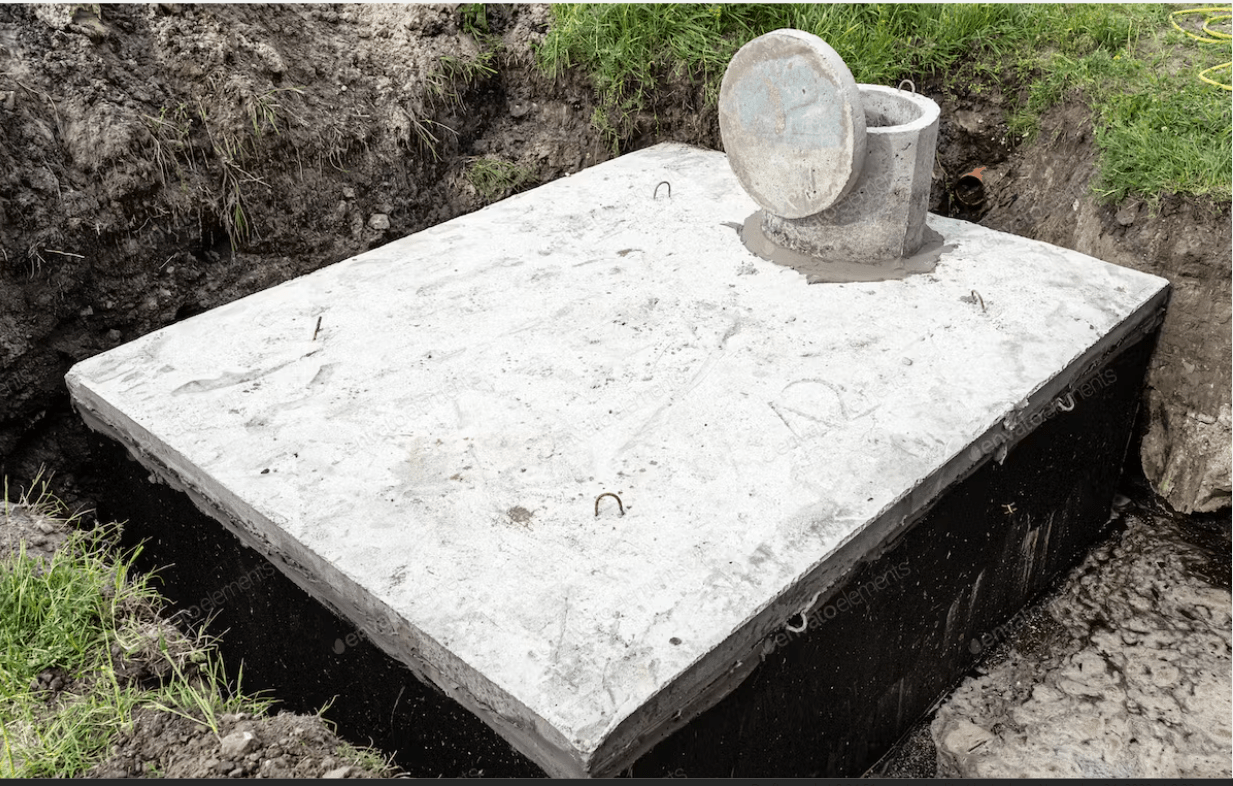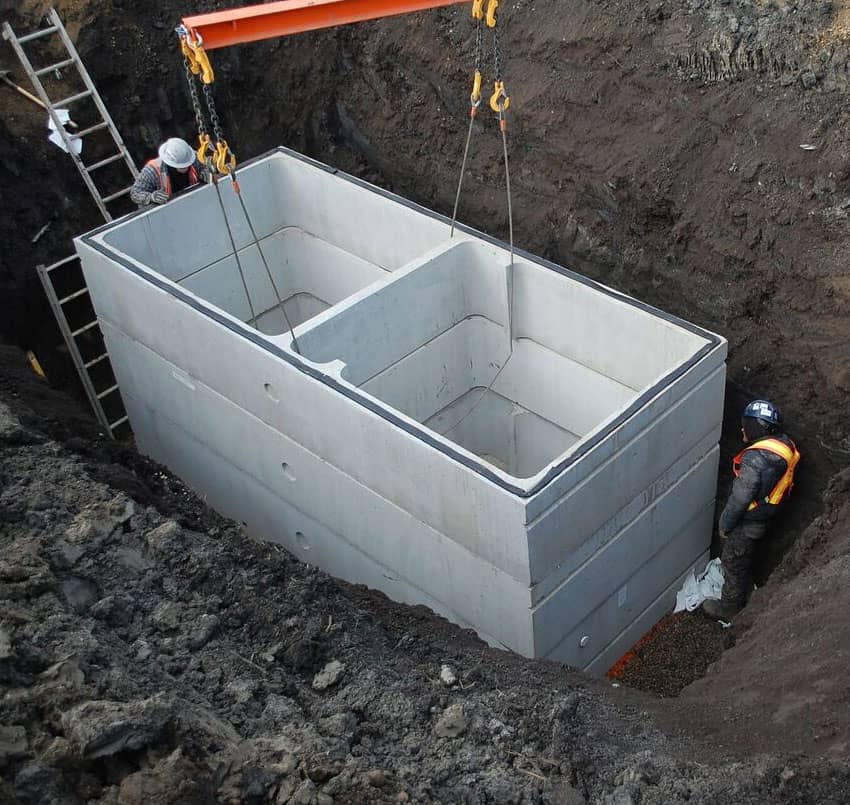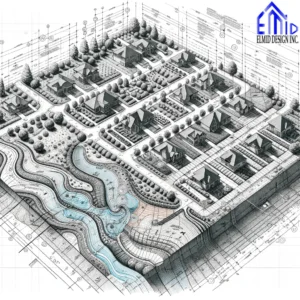Exploring the intricacies of septic system design, this article delves into various system types and essential flow calculations
Septic engineers are pivotal in ensuring the efficient and safe management of wastewater. Their expertise lies in designing systems that effectively treat and dispose of household and commercial sewage. This specialized field requires a deep understanding of soil science, microbiology, and environmental regulations, making septic engineers key players in preserving public health and the environment.
Septic System Designer vs. Installer: Key Differences
Understanding the distinct roles of septic system designers and installers is crucial. A septic system designer meticulously plans the entire system, catering to specific property needs. In contrast, an installer, like a Project Manager, oversees the practical aspects, including the installation and coordination of necessary tasks.
The Role of a Septic System Engineer
Septic system engineers bring their specialized knowledge to tackle complex design challenges. They are essential for designing large-scale systems, dealing with small lot spaces, and addressing unique geotechnical challenges. Their expertise is vital in environmentally sensitive areas where standard solutions might not suffice.
Septic system engineers play a crucial role in wastewater management, skillfully addressing complex scenarios beyond standard designs. Importantly, they tackle large-capacity systems for commercial or extensive residential developments. Additionally, they expertly navigate geotechnical challenges in constrained spaces. Their expertise is particularly vital in environmentally sensitive areas, ensuring septic systems operate efficiently without harming ecological integrity. By utilizing advanced techniques and comprehensive knowledge, septic engineers, notably those at Elmid Design Inc, are essential in developing sustainable, compliant, and effective septic solutions.
Essential Components of a Septic System
The efficacy of a septic system hinges on its components. Effluent filters, for instance, play a critical role in enhancing effluent quality and extending the life of the leaching bed. These filters assist in the settling of particles and slow down sewage flow, ensuring that the leaching bed remains functional for a longer period.
Advanced Septic System Designs
Innovative septic system designs, such as area beds and shallow buried trenches, cater to various property needs. These systems, specially designed for compact spaces or areas requiring tertiary-level treatment, demonstrate the adaptability of modern septic solutions. Engineers and designers at Elmid Design Inc specialize in these advanced systems, ensuring efficient wastewater management even in challenging conditions.
Compliance with Ontario Building Code and Environmental Standards
Adhering to the Ontario Building Code and environmental standards is non-negotiable in septic system design. These regulations dictate specifics, from the effluent quality to the construction of septic tanks and leaching beds. Ensuring compliance is a hallmark of responsible septic engineering, a standard rigorously upheld by Elmid Design’s team.

Impact of Septic Systems on Environment and Health
The environmental and health impacts of septic systems cannot be overlooked. Reducing phosphate-based detergents and ensuring compliance with standards like CAN/BNQ 3680-600 are crucial steps. These practices help minimize the ecological footprint of septic systems, an approach deeply ingrained in Elmid Design’s philosophy.
Cost Considerations in Septic System Design
The cost of septic systems varies significantly based on factors like property size and soil type. From affordable small-scale systems to more complex, high-capacity ones, understanding these cost factors is vital for property owners. Elmid Design Inc offers cost-effective and site-specific septic solutions that balance efficiency and budget considerations.
Types of Septic Systems: Trench Bed, Filter Bed, and Advanced Systems
Understanding Different Septic System Types Septic systems vary widely, each designed to meet specific site conditions and regulatory requirements. The choice of system type is crucial for efficient wastewater treatment.
Trench Bed Systems: Design and Functionality Trench bed systems, a traditional choice, are known for their simplicity and effectiveness. These systems involve a series of trenches containing perforated pipes over gravel, facilitating effluent filtration through soil.
Filter Bed Systems: Efficiency and Application Filter bed systems offer a higher level of treatment. They consist of a sand or gravel bed through which is evenly distributed effluent, providing enhanced filtration and waste breakdown.
Advanced Septic Systems: Modern Solutions for Complex Needs Advanced systems incorporate technology like aerobic treatment units and biofilters. They are suited for sites with limited space or soil unsuitable for traditional systems, ensuring high-efficiency waste treatment even in challenging conditions.
Flow Calculations in Septic System Design as per OBC Code
Introduction to Flow Calculations in Septic Design Accurate flow calculations are fundamental in septic system design, ensuring the system can handle the daily wastewater volume.
Understanding OBC Code Requirements for Flow Calculations: The Ontario Building Code mandates specific flow calculation methods to determine the septic system size. These calculations consider the number of bedrooms, fixture units, and occupancy, ensuring the system is neither overburdened nor excessively large.
Applying Flow Calculations in Septic System Design In practical application, these calculations guide the design of tank capacities and leach field sizes. Proper application ensures environmental safety, system efficiency, and compliance with regulatory standards.
Case Studies: Success Stories from Elmid Design Inc
Through various successful projects, Elmid Design Inc has demonstrated its ability to meet diverse client needs. Each case study, detailed on their website, showcases their commitment to excellence. From handling complex soil conditions to designing systems for large-scale properties, their portfolio reflects a deep understanding of both the technical and environmental aspects of septic system design.
Elmid Design Inc: A Leader in Septic System Engineering
Elmid Design Inc, a leader in the field of septic engineering, holds a certificate of authorization from Professional Engineers Ontario (PEO). They specialize in designing advanced, efficient, and environmentally friendly septic systems. Their expertise is evident in their ability to handle various projects, from residential to large commercial developments. Their approach combines innovation with practicality, ensuring each design is tailored to the site’s unique needs and complies with all regulatory standards.
FAQs about Septic Engineering
- What is the difference between a Septic System Designer and an Installer?
- A designer plans the system, while an installer manages its physical installation.
- Why is it important to hire a licensed septic engineer?
- They ensure compliance with regulations and optimal system performance.
- What are the key components of a septic system?
- Components include effluent filters, pumps, and siphons.
- How does the design of a septic system vary based on property size and soil type?
- Designs must adapt to the specific environmental and spatial constraints of the property.
Geographic Locations That We Service:
Our licensed professional engineers specializing in engineered septic design offer the best-engineered septic plan and grading and drainage plan to obtain site plan approval and building permits in Ontario, including a wide range of municipalities. Each area boasts unique features and requirements, making our tailored approach essential for success.
Toronto and Surrounding Areas
In the vibrant heart of Ontario, we service Toronto (City of Toronto) and surrounding areas. Additionally, we cover Oshawa (City of Oshawa), Pickering (City of Pickering), and Clarington (Municipality of Clarington). Furthermore, our expertise extends to Ajax (Town of Ajax), Whitby (Town of Whitby), Brock (Township of Brock), Scugog (Township of Scugog), and Uxbridge (Township of Uxbridge).
Halton Region
Moving to the Halton Region, our services encompass Burlington (City of Burlington) and Halton Hills (Town of Halton Hills). Also included are Milton (Town of Milton) and Oakville (Town of Oakville).
Peel Region
In the Peel Region, we provide services in Brampton (City of Brampton), Mississauga (City of Mississauga), and Caledon (Town of Caledon).
York Region
Our services in the York Region cover Vaughan (City of Vaughan), Aurora (Town of Aurora), and East Gwillimbury (Town of East Gwillimbury). We also cater to Georgina (Town of Georgina), Markham (City of Markham), Newmarket (Town of Newmarket), Richmond Hill (City of Richmond Hill), Whitchurch-Stouffville (Town of Whitchurch-Stouffville), King (Township of King), and Bradford-West Gwillimbury (Town of Bradford-West Gwillimbury). Each municipality here offers a distinct setting, requiring our specialized approach.
Other Southern Ontario Cities and Towns
We also serve many other cities and towns in Southern Ontario. These include Hamilton (City of Hamilton), St. Catharines (City of St. Catharines), Niagara on the Lake (Town of Niagara on the Lake), Brant (County of Brant), Cambridge (City of Cambridge), Kitchener (City of Kitchener), Waterloo (City of Waterloo), and Woodstock (City of Woodstock). Furthermore, we operate in Guelph (City of Guelph), Centre Wellington (Township of Centre Wellington), Shelburne (Town of Shelburne), Orangeville (Town of Orangeville), New Tecumseth (Town of New Tecumseth), Essa (Town of Essa), Collingwood (Town of Collingwood), Wasaga Beach (Town of Wasaga Beach), Barrie (City of Barrie), Midland (Town of Midland), Orillia (City of Orillia), Ramara (Town of Ramara), Minden Hills (Town of Minden Hills), North Kawartha (Town of North Kawartha), Kawartha Lakes (City of Kawartha Lakes), Peterborough (City of Peterborough), Selwyn (Town of Selwyn), and Brighton (Municipality of Brighton).
We'd love to hear from you
Get in touch with us
Tell us about yourself by completing the form below. Your information is always kept confidential.
Reach us through
-
13025 Yonge St, Unit # 201G, Richmond Hill, ON, L4E 1A5 - +1 647 745 4507
- info@elmid.ca





